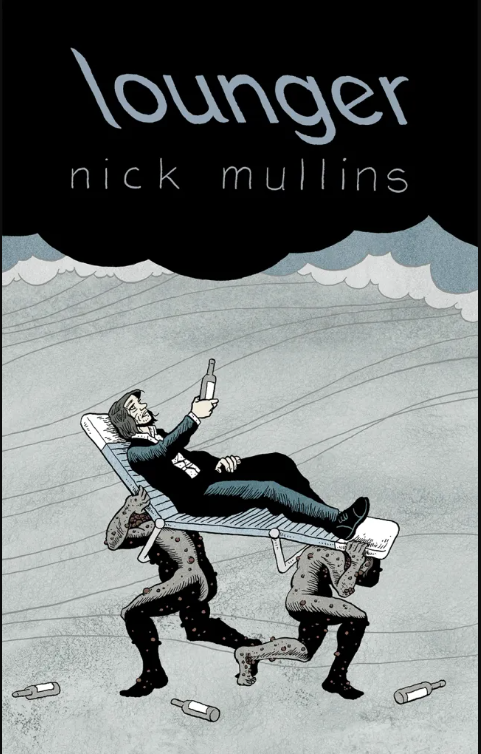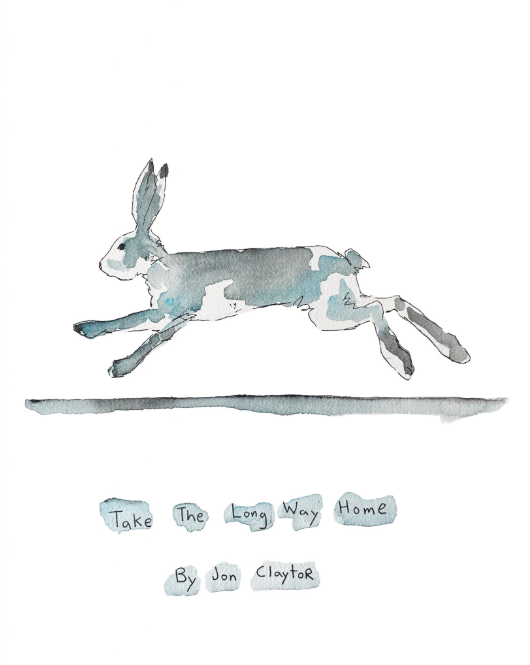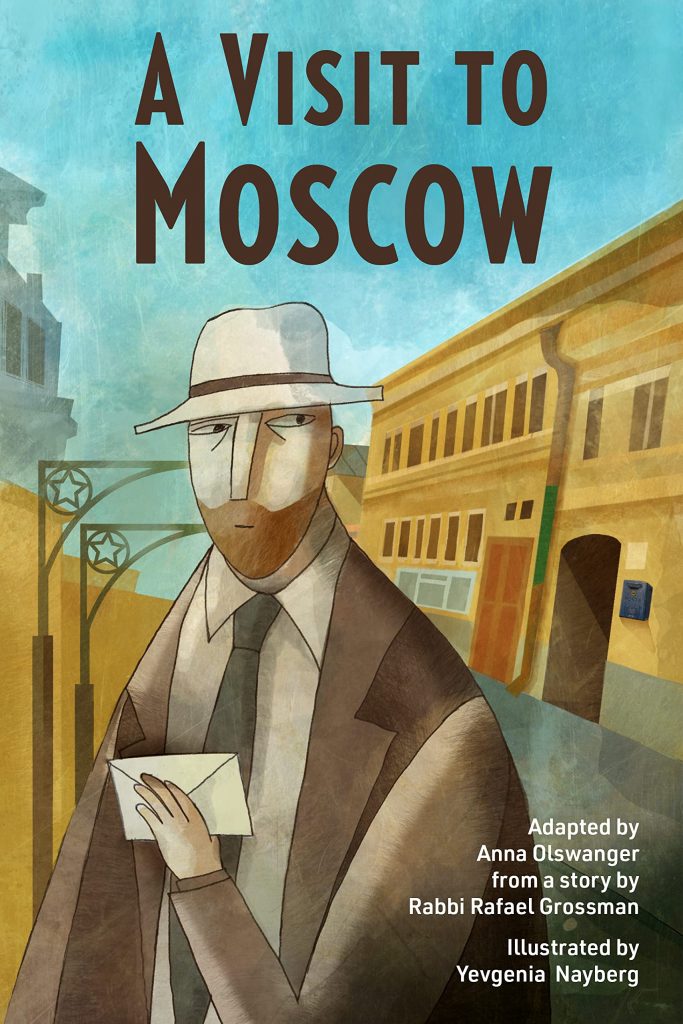Prior to becoming Editor in Chief of SOLRAD, I used to run a comics criticism (among other things) site called Your Chicken Enemy. On that site, I did a capsule review column called Books in Bites that featured books that I had been reading. I thought I would bring it back and give it a new home on SOLRAD. So that’s what I’m doing. And here we go…

LOUNGER
by Nick Mullins
What would you do when it appeared that the world as you knew it was coming to an end? This was not a question I thought I would have to answer in any real way prior to March of 2020 – it was always one of those hypothetical mind games you play to understand priorities and whatnot – but then, of course, pandemic. I’ll admit that when the lockdown began, I, like Jack, the main character in Lounger by Nick Mullins, took a bit of a cynical view of the prospect of the “future” and, like Jack, I did my fair share of drinking. But, unlike Jack, my baggage was lighter. My grief was more abstract, my nihilism tempered by my love and concern for the important people in my orbit.
And yet, even with that, reading Lounger struck a nerve. It makes sense. Jack takes to a lawn chair, drinks his wine, and waits to die. Mullins makes Jack real. You can’t sympathize with his choices, but you can understand them – more so post-March 2020 than, really, any time previous (even having been a youth in the 80s and its nuclear threats and AIDS). There’s a fluidity to the narrative beats of this book that echoes Mullins’ cartooning style – flowing, yet precise – that is just enough to wash over you. It’s like lying in the warm bath of recognition, comfortable in your ability to put yourself “in” the story. It puts you right on the precipice of “yeah, that could be me” without pushing you over the edge.
You want to put Jack’s reaction at arm’s length, but you also recognize that, even so, you’re still touching his sleeve.

TAKE THE LONG WAY HOME
By Jon Claytor
Published by Conundrum Press
I have a love/hate relationship with autobio comics. Sometimes I see them as an opportunity to acknowledge the shared humanity as I witness the banalities and struggles of the artist creating them. Other times, I get bogged down in the tedium of another person’s introspection. My reaction to Take The Long Way Home by Jon Claytor pretty much leans towards the latter reaction. I mean, I get it. Claytor is examining some demons, wanting to purge and move forward, to become a better version of his perceived self – and that takes time and work and courage. But Take The Long Way Home is redolent with the curse of the tell don’t show nature of autobio done with thick hands. Choosing to take the long way on a journey from here to there can lead to interesting adventures, or it can be tedious – a slog more than an experience.
There were often points while reading this book that I found myself getting annoyed, getting bored, and wanting this journey to be over. And maybe this reveals something about me, about my tolerance and empathy, but I tend to think that my reaction was more a result of Claytor’s seeming need to track the minutiae as if something more profound were to be discovered through the act of recording than there is in the act of selecting. Someone should have asked Claytor to make choices, to abbreviate, to allow time for showing more than telling.
Claytor’s linework is hurried – his cartooning kinetic and quick. Unfortunately, his storytelling doesn’t match that pace. If this book had been edited down to half its current size, it probably would have been better for it.

A VISIT TO MOSCOW
Adapted by Anna Olwsanger from a story by Rabbi Rafael Grossman
Illustrated by Yevgenia Nayberg
Published by West Margin Press
Let me get this straight… Vladimir Putin invaded Ukraine to denazify it? Did he think anyone would actually buy that given the historical treatment of Jews in Russia itself? The words systemic antisemitism may not actually be enough to capture the truth of the matter.
A Visit To Moscow is based on the true experience of Rabbi Rafael Grossman who traveled to the Soviet Union in 1965 to investigate reports of the brutal antisemitism Russian Jews were enduring. The story itself is horrific. The choices having to be made in the face of unmitigated hatred and danger are heartbreaking. Yevgenia Nayberg’s art is evocative and claustrophobic and lives in that liminal space between simple children’s book illustration and profound abstract comics work. Her choices in coloring are particularly well-matched to the emotional tone of the narrative.
This is ultimately a story of hope – how the actions of one person can reverberate through generations to come – and as story, this is appropriate and uplifting. But, for me, there is a bit of short shrift to the visceral heart of the experience. It’s as if Olswanger felt that condensing Grossman’s experience gave it more power – and yet this constriction does a disservice to the enormity of what Grossman bore witness to. It congeals something far vaster and, by doing so, files down the edges that, sharpened, would do the most cutting.
In a way, it smudges a mirror that most needs holding up right now.
SOLRAD is made possible by the generous donations of readers like you. Support our Patreon campaign, or make a tax-deductible donation to our publisher, Fieldmouse Press, today.

Leave a Reply